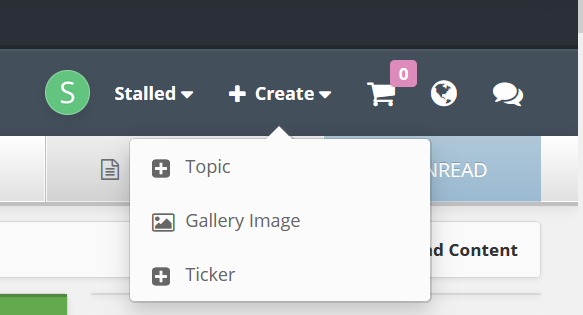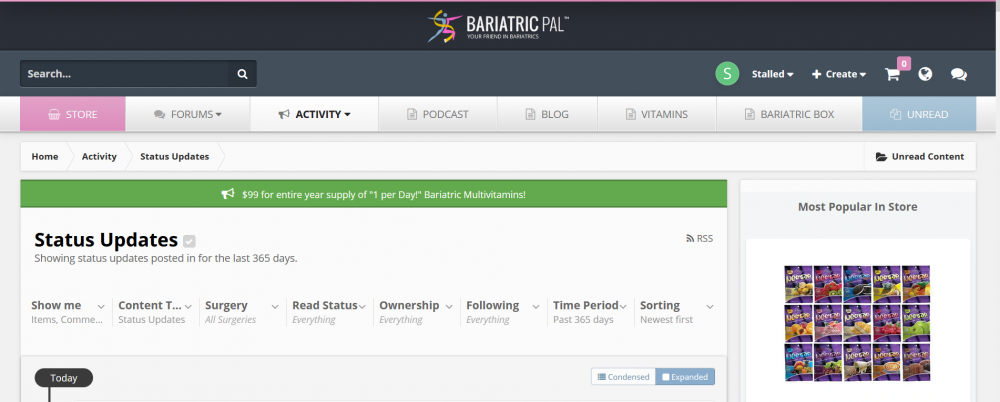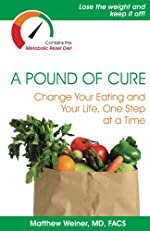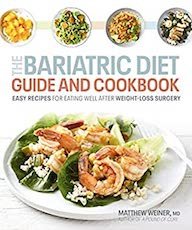

Stalled
-
Content Count
44 -
Joined
-
Last visited
Posts posted by Stalled
-
-
Sip, always have a liquid in eyesight and reach, sip, drink a variety of liquids, sip, ice chips or sugar-free ice pops, sip.
If you're thirsty, you're already dehydrated.
Some people go to the extreme and set alarms to remind them to drink. I don't go to that extent. Some people have a favorite glass, bottle, mug, etc that encourages them to drink more.
If your urine is really dark, you should see a doctor because there might be something else going on. Sometimes weight loss and a drastic reduction in calories can be dangerous for people with kidney disease.
Hiccup reacted to this -
There is a really common misconception that we need to drink 64+oz of Fluid each day. This actually isn't the case, drink what you can, when you can. Everyone's body is different and its needs are, therefore, also different. When you're thirsty, that means you're starting to get dehydrated. With the VSG surgery, you won't be able to chug/gulp anymore so you have to be sure to drink when you're not thirsty so you don't get dehydrated. I could drink larger quantities in one go after about a year. I still can't chug a whole bottle of Water but I can do about 4oz in one go.
Seriously, don't worry about the drinking every 10-15 minutes thing. Just drink when you remember and keep a liquid on hand. And if you find yourself getting thirsty, try harder to remember to drink. Put your bottle at eye level, put a bottle near the microwave or oven so you remember to drink before you eat, a bottle on your nightstand, another in your car, essentially put a bottle everywhere you frequent so when you see it, you take a sip.
Sunnyway reacted to this -
47 minutes ago, Kimchibar said:My surgeon told me not to exercise at least for 3 months since the first “3 months” is the biggest loss. My surgeon also recommended me not to burn more active calories than what I eat since I could potentially starve my body. I only eat 600-650 calories a day. I don’t think it’s wise for me to exercise this early on.
You're completely right about both your points. I should clarify, what I mean by "exercise" is more accurately "activity". This early on you shouldn't be afraid to walk a lot or do similar low-stress activities like swimming (if you're cleared for it). Whatever your body feels like it can do, but not anything intense
 until further on in your recovery. And the part about not starving your body is VERY important too. Unfortunately, everyone's body and metabolism are different so it is difficult to determine what is right (calories amount vs exercise burning) for each person without some experimentation. I think you're at the right caloric level, you might even want to try to eat more to get more calories because your body might be in "starvation" mode right now and that could be one reason why you aren't losing as much as you would like or expect.
until further on in your recovery. And the part about not starving your body is VERY important too. Unfortunately, everyone's body and metabolism are different so it is difficult to determine what is right (calories amount vs exercise burning) for each person without some experimentation. I think you're at the right caloric level, you might even want to try to eat more to get more calories because your body might be in "starvation" mode right now and that could be one reason why you aren't losing as much as you would like or expect.
-
Exercise is key. If you aren't exercising, you need to start. You need to be burning the same or more than the number of calories you are consuming. Are you counting your calories or have an idea of how many calories you consume in a day?
-
You should be eating between 4 to 6 small meals a day and drinking Water in the middle. I was still in the non-clear liquid stage at 4 weeks post-op so I didn't start eating meals until my 2nd month. Those consisted of purees, mashed potatoes, pudding, Soup, etc. Then I moved on to soft food. So I was mostly getting my Protein from Protein Drinks for the first 3 months.
It is super concerning you're passing out. I think you should talk to your doctor or surgeon.
Remember that eating anything is better than not eating anything. So if you can't do a meal, go ahead and grab a handful of nuts or something. I started with lean meats for Proteins. Mostly variations on chicken. Pork loin was also a favorite. I ate edamame like it was crack. I couldn't tolerate bread though.
-
4 years post VSG. No regrets. I was 310 lbs at 22 years old. I'm now ~230 lbs but at one point I was down to ~198 lbs. I didn't have any Hair loss, but I have very thick hair anyway. I have PCOS so my hormones are messed up anyway too so I was on birth control for the extra estrogen, this could have helped prevent hair loss. My mom had the surgery (same doctor and procedure) at 51 about a year before I did. She has naturally thin hair and was post-menopausal. She didn't lose hair either. It really is just chance and your hormones (particularly cortisol and estrogen/testosterone ratios). You can talk to your doctor about your medical options to help lessen hair loss. But if you do have hair loss, I think you should just embrace it! It will only last a couple of months (usually) and then it will start growing back. But this could be your opportunity to do something to your hair that you've never done before, cut it super short, dye it as close to your skin color as possible can sometimes disguise hair loss, add hair accessories, etc.
Neither of us had complications, she even had a hernia fixed for free at the same time! I was up and walking around within hours of waking up. My mom was walking laps the next day (she isn't that great with anesthesia).
If I hadn't gotten the surgery I have no doubt I would have been recruited for "My 600 lb life" by now.
-
If you're eating too few calories, your body thinks it is starving and will actually store the calories you do consume as fat to protect your organs and conserve during your starvation. That might be what is happening with you. If you consume the exact correct amount of calories (burn what you eat) then your body forgoes the storage part and jumps right to the "using it" part. So yes, if your surgeon says eat 1000 calories a day, try to do that.
Regarding exercise, that is really helpful with the "burn what you eat" process. I don't recommend rigorous exercise so soon after surgery. But more activity and movement, in general, is always a good thing. If you're walking 5000 steps a day, increase it to 8000.
Ready21 and GreenTealael reacted to this -
5 minutes ago, Numbheart said:Has anyone tried homemade kale chips? I saw someone post it on IG and I tried it, it cooked on an air fryer. I also like sugar free Jello
I love kale chips! It just takes forever to make them because of the stems/veins.
-
-
I was 22 when I had my gastric sleeve. It was in July and I was staying with my parents before going back to school in August after the summer break. This gave me plenty of recovery time. I didn't attend any social gatherings during the recovery. But it was the 4th of July the day before I flew out to get my surgery, there was a family bbq and I was on my liquid-only pre-op diet. It was terrible but I overcame temptation. Everyone was asking why I wasn't eating. But I just said that I had a surgery in a couple of days and couldn't eat anything. But at that moment I made a promise to myself.
"I will answer honestly whenever someone asks in the future, I won't hide it, there's nothing to be ashamed of"
When I got back to school after my surgery there were a couple of social gatherings where it came up, and I just said, my stomach isn't big enough to eat what is on my plate, when they would ask why I would say, "part of my stomach was surgically removed in July" and that is usually good enough. But when it isn't I just say, I had the surgery done voluntarily for my health to help me lose weight. I wasn't uncomfortable about it. I even had to tell my lab classes that I would need to leave periodically to drink Water (no food or drinks in labs). Inevitably I would have to say why.
Comfort is relative. If you think you will be uncomfortable because you're hiding the surgery, don't hide it. If you're uncomfortable because of all the food, bring your own. etc. Do what makes you feel best. If you aren't ready, you aren't ready, and that is fine. Like I said, I had a couple of months at home before having to join the world. I think that helped a lot.
mswillis5 reacted to this -
8 minutes ago, sleevedandhappy said:Thank you! That gives me a lot of encouragement. My Vitamin levels are good and I do take them faithfully every day. It’s great to hear from someone who is past my point and can relate to my issues. Thank you for your input!!!
Glad to help! Also, I forgot to add something about your comment about Water being nauseating. Is that all the time? I don't drink anything about 30 minutes before and after eating. I have also found that my filtered tap water gives me heartburn, but bottled water is doesn't (depending on the brand). Different bottled water has different pH so you might want to experiment and see if there is a bottled water brand that doesn't make you nauseated. Because it might be due to pH or certain minerals in the water you're drinking.
-
6 minutes ago, lizonaplane said:Hrm... I just looked and I do have the status update option. Maybe it has to do with what type of device or browser you are using? I'm using a PC and chrome.
I just tried going onto chrome and it still doesn't display for me. I am also using my PC and not the phone app. So weird.
-
First, I recommend talking to your surgeon or doctor. Since it's been 16 weeks, you could go in and get your Vitamin levels check to make sure you're getting enough nutrients from your diet.
The high Protein daily recommendation isn't always feasible 16 weeks after surgery, it wasn't for me! I could only take a couple of bites of my food and then I was full. I couldn't eat a full chicken breast until about a year after the surgery. I was told to have 4-6 small, high-protein meals and then snack with fruit or veggies throughout the day. And not to worry about veggies or fruit with a meal until I could fit more into my stomach (about 1 year later). As long as your taking your Vitamins it shouldn't be a problem, you might want to add a Fiber supplement though.
The 64 oz of Water is just a rule of thumb, not everyone is able to do it or actually need it. As long as you're not dehydrated, don't worry about it. Just remember to sip throughout the day and keep some water on hand.
Regarding distaste for food, yes, it gets better. I couldn't stand some of my favorite foods after my surgery. But I'm 4 years out and I'm now able to tolerate most of them again. I also noticed (my mom did too) that eating slower helps your stomach handle food better.
TLDR: get your vitamin levels checked, but if they're good, you're fine. Don't try too hard to meet the diet "requirements" just try your best.
sleevedandhappy reacted to this -
Just now, lizonaplane said:Are you trying to update your "progress" i.e. your weight and stuff? That would be to go to the top of the screen where your user name is, then the arrow next to it, then click on "my surgery" then "progress". (progress is to the left on the "my surgery" screen)/
No, I just notice that there is a "status updates" section that people seem to be able to post to that aren't topic thread-worthy. But I can't find anywhere that lets me post a status update. I emailed bariatricpal using their "contact us" link but no one has gotten back to me and it's been about 5 days now.
I was able to figure out how to update my weight and stuff yesterday! I only weigh on Sunday mornings so seeing that I lost 5 pounds this week made me want to explore the website more and see if I could post on the status updates like I'm seeing others do.
-
4 hours ago, Lynnlovesthebeach said:Click on "create" at the top of your screen and select "status." You can do an update there. It doesn't look like many people respond to those though.
Hi Lynn,
My "create" tab doesn't have a "status" option.

-
Hi All,
I'm new so I'm not as familiar with this website. But I would like to post a "status update" but I can't figure out how to do that. Obviously, I can post on topic threads but that isn't what I'm interested in doing.
Any instructions would be appreciated!
Below is what I am seeing when I go to the status updates page. As far as I can tell, there isn't anywhere for me to create new content.
-
1 hour ago, Bloodhound said:Did you find it a challenge to eat only liquids? I am worried that if there isn't some instant change I'll want solids to fill the void.
I was on only liquids for my preop diet (2 weeks) and for two months post-op. I got so sick of all of the Protein Drinks because they were so sweet. And I admittedly have a sweet tooth, but by the time I could have non-clear liquids, I was 100% done with sweet drinks. I rejoiced when I was allowed to have milk!
I don't completely understand what you mean about an instant change. But for me, it was mind over matter. I knew that if I ate solids before my stomach healed completely, I would be putting back my recovery and potentially damaging my body even worse. I didn't want to risk it so I stringently kept to my post-op liquid diet.
Arabesque, Sunnyway and GreenTealael reacted to this -
That is really awesome! Congratulations on your success! You should be proud of yourself
 GreenTealael reacted to this
GreenTealael reacted to this -
7 hours ago, Sunnyway said:Forget Snacks entirely unless they are Protein or vegetable. They grease the slippery slope to regaining what you have lost. I speak from experience. I am approaching RNY revision and I will not make the same mistakes again.
The pre-op food plan and the (clear/full liquid/puree) stages post op while we are not getting hungry give us the opportunity to establish a new way of eating. If we seek sugar-free or Keto Snacks we are merely making some substitutes for the OLD way of eating. It's too easy to find ourselves eating sugared and carbohydrate snacks and food when we don't happen to have the "-free" type.
Just because substitute snack foods are sold on bariatric sites does not mean they are good for us. If we are wise we will ignore those products.
Eat whole foods, fresh or frozen vegetables and fruits, quality poultry and meat products. Avoid sugar, sugar substitutes, wheat/flour products, and processed foods. We can get plenty of tasty food to eat with these choices.
I encourage you to obtain and read these two books by Dr. Matthew Weiner: A Pound of Cure and The Bariatric Guide and Cookbook. There are lots of other bariatric cookbooks available, too, including some for Air Fryers, InstaPots, and CrockPots. These will help you learn your new way of eating.
Hi Sunny, thank you for the advice and I'm glad that it is working out for you! I will absolutely be taking a look at Dr. Weiner's books and videos!
That being said, there are some things that I don't completely agree with you about. Yes, I think focusing on the high Protein, low carb diet is important, and limiting snacking is also important. But here are my two hold-ups.
1) We all snack. With the gastric sleeve, we are told to have 4-6 small "meals" a day to meet a minimum caloric intake. I, and many others, are not going to cook 4-6 "meals" a day, it takes too much time. So, I would rather have a healthy snack like yogurt and berries than an unhealthy one like a sleeve of Cookies. Eating sliced deli meat and nuts can get very boring very quickly. That is why I'm trying to build a list of healthy snacks and alternative/substitute foods. This brings me to my second point.
2) Most of us live with other people. This means we are constantly exposed to the snacks and unhealthy food they are eating. If I can replace these foods with sugar-free or healthy alternatives, I won't be as tempted by them and even if I do indulge a little, they aren't as unhealthy as having a slice of cake or a handful of Doritos or potato chips. That is also why I asked about substitute or alternative foods.
Again, I appreciate your comment, suggestion of Dr. Weiner, and your encouragement, but it is a pipe dream to think that a person can stick to the pre-op or post-op diets everyday all-day for the rest of their lives. I'm just trying to limit my bad choices, especially while I'm at home surrounded by other people's food.
Esi reacted to this -
2 minutes ago, catwoman7 said:those vegetable chips often aren't much healthier than the real thing since they're usually fried and salted. Some people like Quest chips, though - and the upside of those is that they're really high in Protein. Quest (and Larry & Lenny's) also make high Protein Cookies.
I try to avoid things that are too close to things I really shouldn't be eating - or at least not on a regular basis. Although I do sometimes eat things like Greek yogurt if I'm craving ice cream - or else "popsicles" I make out of Greek yogurt and sugar free pudding.
I think it's great that you're making some Snacks yourself! I actually make zucchini and kale chips myself using fresh vegetables and my dehydrator. So they aren't processed and taste great!
catwoman7 reacted to this -
As the title says, what are some of your favorite sugar-free foods, treats, or Snacks? What about food substatutes or alternatives (eg. zucchini chips instead of potato chips)?
Tomo reacted to this -
Did you happen to have a hernia that they fixed during the surgery? That's the only time I've heard of someone having a binder after surgery. Maybe it depends on what surgery you had? I only know for my gastric sleeve I was a textbook case and didn't need a binder but my mom had her hernia fixed at the same time and did need a binder.
I know you didn't ask, but for people who are curious, binders are great for encouraging the muscles to rebind and heal in the correct positions. It is why they are recommended to women after they have c-sections. I don't think there is any harm to wearing the binder as long as you are keeping your incisions clean. Binders do sometimes increase the risk of infections since it is so tight to your body and sweat can soak into it.
-
I was a lucky one who didn't have Hair loss. I am on a daily Biotin supplement anyway though. As the commenters before me said, when your body is under stress, your hair is likely to fall out. In fact, I study the stress hormones, cortisol in particular, and the way it relates to hair loss is this. When you go through a stressful event (like surgery or childbirth) your body releases more cortisol initially to help with the recovery process and release of other hormones. But with the increase in cortisol, it actually triggers itself to shut down and produce less cortisol after a short while. That means after a duration of high cortisol, the level will suddenly drop and you will have low cortisol levels. Cortisol is an insulin antagonist, meaning that cortisol levels are low when insulin is high and vice versa. As research has linked high insulin to hair loss, low cortisol will spike insulin, causing hair loss, dryness, and brittleness.
miz_hopefull reacted to this -
Sipping throughout the day. If you need to "guzzle" because you're really thirsty, that means you are already dehydrated. You might be able to consume more ounces at once by guzzling, but for me, it actually hurt and made me throw up. This went on for about two years. Still, four years after my surgery, I can only drink about 6 oz in a minute or two. Honestly, drink as much and as frequently as you want but make sure you're not hurting yourself.
I actually had a glucose tolerance test recently and they had to cancel it because I couldn't drink all of the sugary liquid in the time they needed. I ended up throwing up.
Ready21 and Sunnyway reacted to this






Drinking with Meals
in Post-op Diets and Questions
Posted
You can sip if you need to. It's not going to hurt you. Just try to stick to non-carbonated and non-alcoholic drinks.